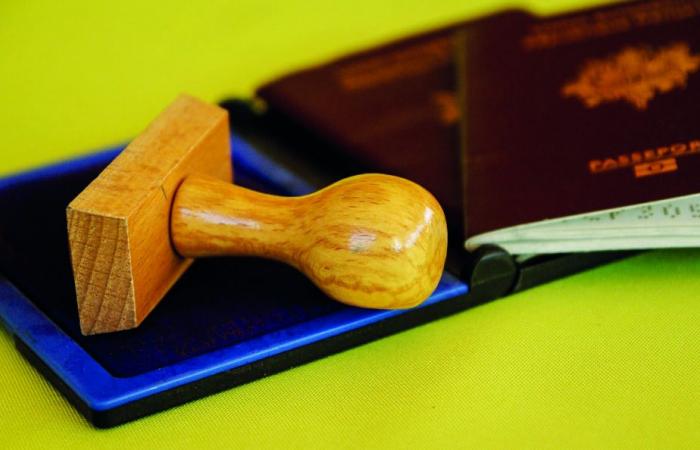According to a study carried out at the start of the year by the survey site Selvitys, 10.8% of French people say they have already created a false document in 2023, with a success rate reaching 73%. Priority subject for the government, whose former Prime Minister Michel Barnier proposed linking the Vitale card to the identity card to fight against social assistance fraud. To avoid it, you must first understand the mechanism. The Doubs department has set up introductory courses on documentary fraud, particularly in Haut-Doubs on November 12 and 14. Organized at the sub-prefecture of Pontarlier, the training, supervised by experts from the Border Police (PAF), was aimed at officers from the town halls of Pontarlier and neighboring municipalities. “It is essential for our agents, who are regularly required to handle them, to recognize a false document. »declares Corinne Lamarche, document fraud referent for the department. “ Even more so in a transit area like Pontarlier”adds André Briot, chief brigadier in documentary fraud at the PAF.
The border police, based in Pontarlier, regularly work on this type of fraud. She investigates regularly, in all areas, in order to stay informed of the latest trends in fraud. During this training, the brigadiers provide essential tools for detecting a false document: the check begins with a tactile and visual analysis of the document, identifying the priority elements to check. Tools such as magnifying glasses or ultraviolet lighting are used to further the analysis. “Today many town halls have no equipment, it’s problematic. »regrets the policeman. The police finally present several databases on the internet, allowing them to obtain objects of comparison on which to rely.
“Everyone has their own story”
Obviously, one of the main reasons pushing some individuals to falsify documents remains access to social benefits. The other major motivation concerns obtaining the right to reside on French territory: “We have foreign nationals presenting false documents submitted to mafia networks. They are often exploited elsewhere »declares André Briot. For others, it is sometimes the only option: “We do it case by case, everyone has their own story”continues the prefecture representative. An investigation is thus carried out on the individual, and in certain cases, their administrative file can be regularized. The identification of fraud follows several stages: it is first reported to the prefecture, which transmits it for analysis to PAF experts. An investigation is then carried out to understand the motivations and situation of the person concerned, making it possible to detect possible identity theft or people seeking to escape an arrest warrant.
It’s digital’s fault!
“In France, we have very secure biometric documents”recalls the chief brigadier. This is also the result of heavy state investments. “In the end, we are working more and more with dematerialization, it’s a shame.” The survey conducted by Selvitys shows that 73% of counterfeit documents go through dematerialization. Many institutions, in addition to lacking training, accept documents transmitted digitally. “We must reconcile human rights and responsible digital identity”underlines Corinne Lamarche who believes that the impact of fraud training is undervalued by institutions. The vast majority of people using these documents, town halls or insurance companies for example, are not sufficiently informed. “The investment would be profitable, taking into account the enormous economic loss that this represents. »assures the chief brigadier. After their interventions in Pontarlier and Besançon, the trainers finished their journey in the Montbéliard region on December 11 and 12.







